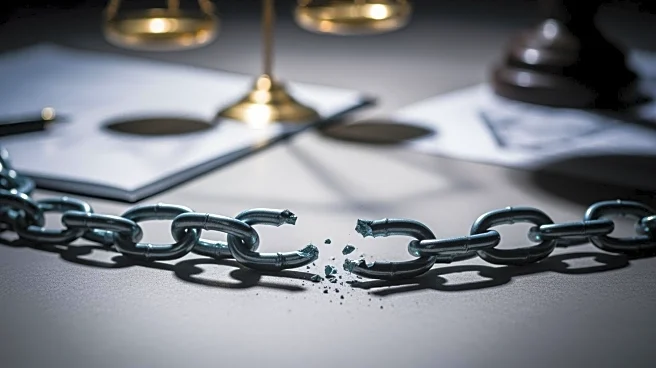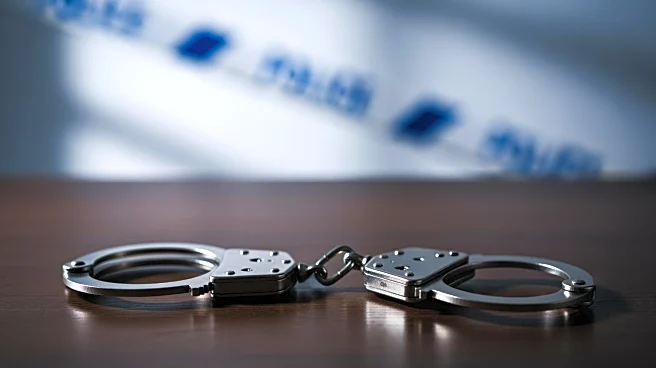What's Happening?
Government Ekpemupolo, known as Tompolo, has distanced himself from calls for the release of Nnamdi Kanu, leader of the Indigenous People of Biafra. The PBAT Door To Door Movement, a pro-Bola Tinubu group, clarified that Tompolo is not associated with
a 21-day ultimatum issued to the Federal Government regarding Kanu's release. The group's National Coordinator, Sunday Asuku, labeled the claims as baseless and the work of propagandists. Kanu is set to open his defense in terrorism charges at the Federal High Court in Abuja, following an adjournment by Justice James Omotosho. Asuku emphasized Tompolo's commitment to national peace and development, and urged security agencies to investigate those spreading misinformation.
Why It's Important?
The denial by Tompolo highlights the sensitivity surrounding the legal proceedings of Nnamdi Kanu, a figure central to separatist movements in Nigeria. Tompolo's dissociation from the ultimatum underscores the potential for misinformation to disrupt national unity and security. The situation reflects broader tensions in Nigeria, where political narratives can influence public perception and governmental actions. The call for security agencies to address misinformation indicates a proactive stance against divisive propaganda, which could have implications for national stability and the integrity of public discourse.
What's Next?
Security agencies may investigate the sources of misinformation, as urged by the PBAT Door To Door Movement. The legal proceedings involving Nnamdi Kanu will continue, with potential implications for national security and political dynamics in Nigeria. The outcome of Kanu's trial could influence separatist sentiments and governmental responses. Tompolo's ongoing support for President Bola Tinubu's agenda may further impact his influence in national politics, potentially affecting his role in advancing socio-economic and political diversity.
Beyond the Headlines
The situation raises questions about the role of social media in shaping political narratives and its impact on national unity. The spread of misinformation highlights the ethical responsibility of media and political groups in maintaining integrity in public discourse. Long-term, the case could influence legal and political strategies in handling separatist movements and national security issues.















